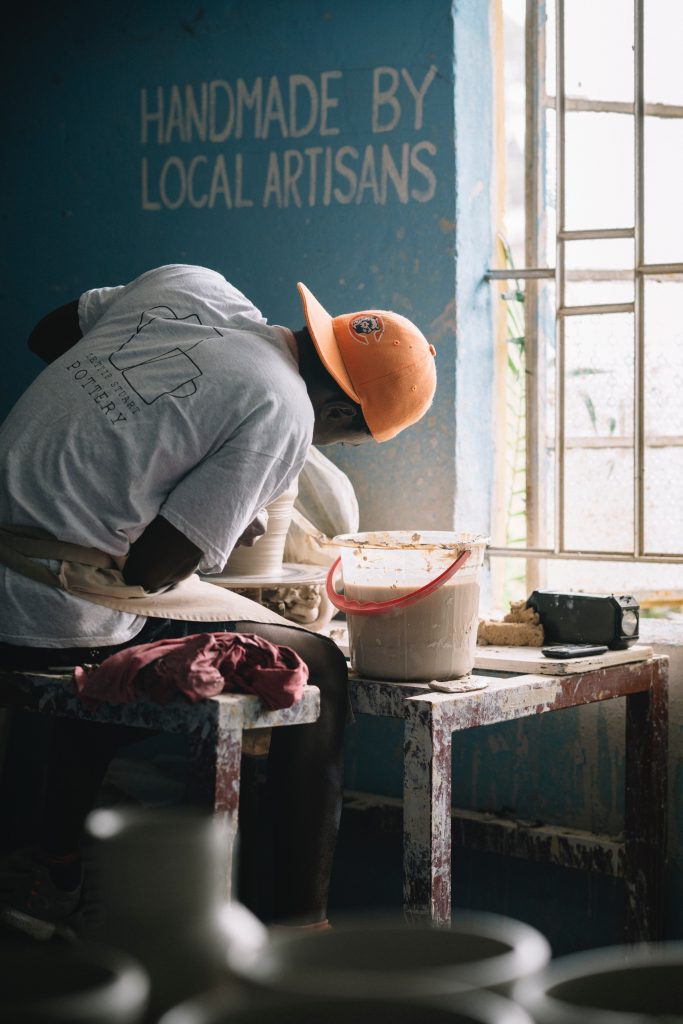Transformation requires tension, wander, courage, and a willingness to engage with a sense of lostness.
In the fall of 2020, Community Foundations of Canada embarked on the Transformation Exploration Initiative to build its understanding of how to support systems transformation within the community foundation movement and with other sectors. This Initiative responded to the significant shifts brought by COVID-19, the racial and wealth inequalities exposed and exacerbated during the pandemic, and our persistent climate emergency.
The following piece reflects on our journey, the lessons we learned along the way, and the abundant possibilities that we continue to relentlessly pursue in our commitment to creating a future where everyone belongs.
Co-written by Njoki Mbũrũ, Inda Intiar, and Michelle Baldwin

Infrastructures of Imagination
The opportunity to contribute to futures that are more equitable, livable, inclusive, and pleasurable is both a privilege and a right. Beyond the status quo and familiar, there lies a place for curiosity and amusement. A fertile ground for our ‘what if’ questions, and a nurturing environment for our unrestricted thoughts and undefined ideas.
Transformation requires tension, wander, courage, and a willingness to engage with a sense of lostness. In parts of our individual and generational stories, we might have templates to fall back with guidance and instructions about certain processes, traditions, beliefs, etc. But even these ‘norms’ and ‘standards’ – were, at one time, someone else’s imagination.
“We are living inside other people’s imagination”
Terry Marshall
While these long-held, tried-and-tested templates might facilitate efficiency, rarely do they embrace imagination, equity, inclusiveness, and diversity of perspective. Convenience often comes at the expense of complexity; and this seems to be a primary ingredient in the fuel that powers modernity.
Therefore, when working towards systems transformation, questioning the status quo is both necessary and irresistible. It nudges us towards what Nigerian philosopher Bayo Akomolafe calls “an otherwise”.
To say this differently, the capacity to engage in the work of change and transformation requires a force that pulls us away from what has always been; a tug of our imagination; a resistance to the flow of familiarity; a fumbling towards a distant echo across the vastness of our social, political, economic, and cultural landscapes. Most importantly, at least from our perspective as people in the liminal space, systems transformation requires an willingness to embody formlessness; to play with shape-shifting; to become malleable; and to observe how this individual ‘I’ is connected to all ‘we’.
Back to the Basics
The journey towards transformation is not restricted to any single path, nor is it linear. We believe that there is a multiplicity of possible pathways in the process of systems transformation, and it is this abundance of imagination and futures that makes our work rich, resilient, and an act of resurgence.
In the context of modernity, there is a bias toward simplicity, uniformity, hegemony, and narratives with predictable endings. Predicated upon these reductive, singular approaches to creation, community, and creativity is a disposition toward scarcity and competition as the mechanics of growth and progress. And reflecting one layer deeper into this hypothesis, we observe that modernity’s obsession with ‘progress’, perhaps unintentionally, privileges the few who get to define what ‘progress’ is.
As such, when combing through our definitions and understandings of systems transformation, here in the CFC Transformation team, we not only welcome but also prioritize complexity, contradiction, inter-dependence, and multiplicity. We are inspired by these three simple words by Calvin Williams who is a core member of the Wakanda Dream Lab, “irresistibility of abundance”.
With this inspiration, aspiration, and mindset, we have, over time, produced the following definition of systems transformation:
Systems transformation involves tackling our most wicked challenges/pressing problems and leveraging previously unimagined possibilities.
Flowing from this, we combed out the following as strands of thought about the nuances of systems transformation. Systems transformation includes:
- Transitioning the state of a system by changing its underlying patterns, narratives, relationships, value flows, and norms.
- Shifting mindsets and paradigms that address the intersectionality, power structures and inequities of these systems.
- A holistic and interconnected process of intentional change.
- Goes beyond addressing a single mission or issue area but transforms multiple aspects of a given system for better futures.
The Transformation team has identified the following key themes as our ‘systems transformation aspirations’:
- Racial Equity and Justice
- Indigenous Sovereignty and Reconciliation
- Climate Justice
- Vibrant and Connected Communities
- Inclusive and Sustainable Economies
- Gender Equity and Justice
We do not perceive these aspirations to be siloed and separate from each other. If nothing else, the past three years of living through a global health pandemic has confirmed that we are in innumerable web-like networks of relationships and systems. Therefore, to invest our time, energy and resources into questioning, creating, or shifting policies, practices, and patterns in the sector of Climate Justice means that we contribute to some sort of necessary interruption/disturbance in the area of Inclusive and Sustainable Economies.

Can I Get a Witness?
While we might have the privilege of creating our own stories, we also have a responsibility to bear the consequences of whatever narratives we choose to create.
As part of how we work and learn, we lean on the transformative power of storytelling to lead to shifts, at an individual, interpersonal, and systemic level. Storytelling, as we have observed, reminds us to look at ourselves first before writing or talking about the broader networks we are part of. This work of narrative creation is simultaneously introspective and outward-looking, and this is a process that requires intention, attention, and repetition.
When speaking to systems transformation specifically, storytelling serves as a powerful tool that illuminates our strengths and unique contributions to systemic change. At the same time, storytelling also unapologetically shines a spotlight on how our beliefs, values, and ways of working are themselves barriers to transformation. How we choose to incorporate the lessons we pick up along the way is up to us – are we only listening to what we want to hear?
In this journey through/towards systems transformation, we have invited several people as witnesses to our collective (un)becoming. Alongside our own introspective practices as individuals and teams, we create spaces to learn from diverse community members and leaders. These are people who hold varying roles and responsibilities within their own communities, but graciously offer their skills towards supporting us in our transformation journey by asking us challenging questions, sitting in the tension of the unknown, and navigating ever-changing terrains through multiple forms of storytelling.
Since 2022, we have collaborated with 3 young storytellers through our recently-created Transformation Storytelling Fellowship. The Transformation Storytelling Fellowship is an initiative under CFC’s Transformation Portfolio. Its intent is to mobilize young people to bring an equitable and intergenerational lens into storytelling, with the goal of enabling systems transformation. The Fellowship is made possible by funding from Canada Life, RBC and Propel Impact.
These storytellers that we have, and continue to collaborate with, Ayusha Mahajan, Inda Intiar, and Njoki Mbũrũ, bring a range of lived experiences, skills, questions, visions, and nudges to our work. Their stories are creating new templates for how we reflect on, talk about, and work with change. Over the past year of iterating this process, one important observation has come forward: If we are to truly live through, and into our purpose of creating a future where everyone belongs, we must make ourselves available to the vulnerability of being witnessed. We must allow ourselves to be seen wholly – in our flaws, faults, failures – and let this process of being witnessed guide how we position ourselves as both writers and readers of a new story.
We do not get to define the meaning of ‘a future where everyone belongs’ if we are unwilling to be present with every part of who and what we are right now.
So, at this time, we want to thank you also for witnessing us by reading this story. Consider this is a genuine invitation to engage and co-create with us.
We look forward to being with you in dialogue, inquiry, play, and amusement where we will bear both the privilege and responsibility to witness each other in our systems transformation journey.
To connect with us:




